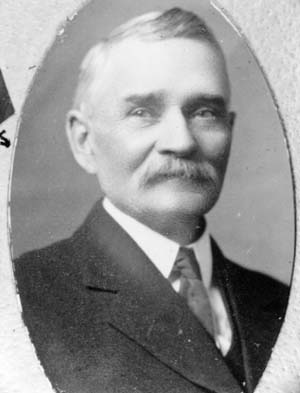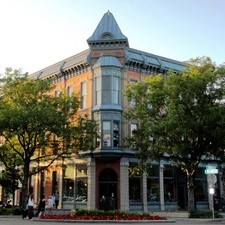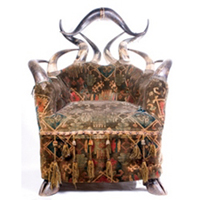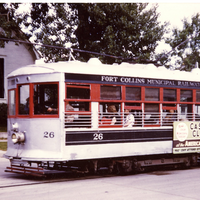News Flashbacks
Headline: Unknown
by David Watrous

"SQUEAKY BOB" Wheeler stepped off a C & S train at Fort Collins on July 13, 1885, clad in a tight stripped suit, tan spats, narrow buttoned shoes, a long coat, a tall silk hat and kid gloves.
Looking over the infant city in the evening, he came to one of the present bank corners at College and Mountain avenues. There he found a bearded, rough-looking man who had turned his horses loose to graze in the streets, and was pitching his tent and building a camp fire.
Sheriff Jim Sweeny, accompanied by a complaining citizen, approached the stranger to suggest that he move his camp elsewhere. The visitor reached for his Sharps rifle and suggested with some emphasis that the sheriff depart.
"I'm stayin' here," he said," and my horses are gonna eat the grass out of these streets so a body can walk downtown without gettin' grasshoppers down his neck!"
This Account of an early Fort Collins "growing pain" is reproduced by Mr. and Mrs. James Rose Harvey of Denver in the current issue of Colorado magazine, published by the State Historical society, of which Mr. Rose is assistant historian. The story originates in a genealogy of the Wheeler family found, in the Denver Public Library.
The story goes on that Sheriff Sweeny soon returned, accompanied by Mayor Bill Miner. The later recognized the "squatter" as Bill Ballinger, North Park rancher. He offered him the freedom of the city and told him to graze his horses wherever he wished.
But he warned him, "Don't put in a bill for them critters of yours mowing the streets."
Bob Wheeler had recorded his disappointment. He thought he would witness some western gunplay.
Mr. Wheeler, the magazine article relates, joined his brother, Luke Wheeler, in North Park, and became a rancher. It was told of him that he was not above appropriating a maverick on occasion. Neighbors are said to have been mildly curious about the rapid growth of his cattle herd, and a few "wild thinkers" told it about Squeaky Bob had "got a hold of two Texas steers and they had at least two calves each spring."
In 1892 he took a contract to break horses in the old Fort Collins fairgrounds, near the present site of the county hospital from Mayor Bill Miner and Harry Schidner. In later years he took up a 160-acre homestead near the west end of Milner pass, 20 miles north of Grand Lake, and there built and operated a tourist camp that became widely known. He died in Denver in 1946.


Preserving the history of Fort Collins, Colorado & the Cache la Poudre region





